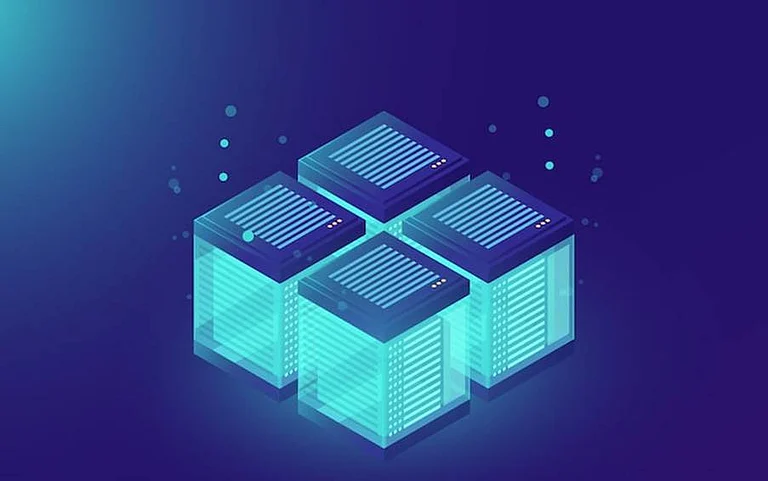Bitcoin wallets have come a long way from being mere digital storage systems for cryptocurrency. A wallet in the early days of Bitcoin was virtually a software implementation that produced and held private keys, giving users control over their coins. Today, the Bitcoin wallet ecosystem is much more evolved with high-level cryptography, multi-layered security architectures, and privacy-centric functionalities. Knowing these esoteric wallet concepts is of utmost importance to any user wishing not only to store Bitcoin, but to store it, spend effectively, and even use it in the new decentralized apps.
Simple Keys to Hierarchical Deterministic Wallets
Behind each Bitcoin wallet is the public and private key pair idea. Early wallets originally employed a single private key for one address. While this was technically acceptable, in practice it became instantly unmanageable when users had to keep many keys secure. This necessitated the creation of Hierarchical Deterministic (HD) wallets, the grand innovation.
HD wallets in terms of the BIP32 standard enable users to derive a key tree from a seed phrase. Users can derive an unlimited number of Bitcoin addresses from a single master seed without storage requirements for each private key, saving space. This was not only an advancement in enabling backup and recovery using seed phrases but also gave better privacy, as it could generate a new address for each transaction.
Multisignature Wallets: Securing Together
A further significant innovation concerns the application of multisignature (multisig) wallets. These wallets ask for more than one private key to validate a transaction, compared to a single key. To illustrate, a wallet can be built that asks for a 2-of-3 signature, implying two of the three signatories have to sign before the transaction can be valid.
Multisig technology offers great security from loss or theft. Companies prefer multisig wallets to make sure that no single person has full control over funds. Individually, the users can share keys with multiple devices or even with family members to make single-point failure less likely. This idea introduces a level of trustless security which complements Bitcoin's decentralized mindset.
Hardware Integration and Cold Storage
As Bitcoin usage increased, the requirement for secure storage solutions outside of software wallets increased. Hardware wallets emerged as a leading choice. Hardware wallets keep private keys away from computers and phones, meaning sensitive data never exit the hardware device itself. Along with methods like multisig, hardware integration provides a robust cyberattack defense.
Cold storage—having private keys stay offline entirely—can still be the gold standard for long-term holders, and hardware wallets give us the ability. Advanced wallet designs tend to stack hardware, software, and multisig elements on top of one another to provide layers of security, institutional as well as individual.
Privacy-Enhancing Wallet Features
Privacy is increasingly important when dealing with Bitcoin. Bitcoin itself is pseudonymous, but it is possible to trace the vast majority of transactions back to identity with blockchain analysis. UTXO-based wallets have reacted with user privacy-minded tools.
One of them is CoinJoin, a payment protocol which accumulates several users' coins in one payment, making it much more difficult to follow money to the source. Wallets such as Wasabi and Samourai implement CoinJoin and similar software, providing their users with greater anonymity. Stealth addresses and PayJoin features are also in development in order to further conceal trials of payments.
By including all these privacy attributes, next-generation Bitcoin wallets are not just secure but also safeguard the user identity in a time where digital surveillance continues to grow.
Smart Contract Functionality and Scripted Wallets
Bitcoin is less programmable than Ethereum for smart contracts, but it does possess script-based functionality that can be accessed through advanced wallets. Multisig is a realization of Bitcoin scripting itself. As a secondary capability, wallets can also be implemented to handle time-locked transactions, with the funds sitting idly until a specified block number or date. That does enable applications like inheritance planning, trustless escrow, and savings machines.
Building innovations such as the Lightning Network also call for sophisticated wallet capability. Lightning wallets enable instantaneous, low-cost Bitcoin transactions with off-chain channels of payment. Lightning wallets are far more complex than typical Bitcoin wallets since they have to deal with channel states, routing, and security behind a veil that is imperceptible to the end user.
The Emergence of Custody Solutions and Institutional Wallets
As institutional Bitcoin demand grows, sophisticated wallet ideas have entered the space of custody solutions. Institutional wallets would probably feature hardware security module (HSM) technology, multi-party computation (MPC), and corporate-level governance policies. MPC wallets, as an example, enable private keys to be shared among parties without ever being reconstructed in their entirety in a single location. This eliminates single points of compromise but enables simple transaction signing.
These solutions demonstrate that the future of forward-thinking wallet ideas is not only individual safety but crafting the future of money infrastructure.
Future Directions: A Universal Bitcoin Experience
The future of Bitcoin wallets has utilized these groundbreaking ideas and made them mighty but effortless. Already, efforts are being aimed towards developing wallets that combine hardware-grade protection, multisig redundancy, privacy improvements, and Lightning compatibility into a stunning user experience.
The other area of growth is social recovery wallets, where one's trusted friends can restore one's access in the event of lost keys. With MPC, biometrics, and decentralized identity systems coming together, wallets will shortly become not just gateways to Bitcoin but also multi-purpose machines for the general digital economy.
Conclusion
The evolution from basic key storage to sophisticated wallet infrastructures mirrors Bitcoin's progression from an experimental currency to an international financial instrument. Modern wallets are not virtual treasure chests—they are sophisticated security mechanisms, privacy shields, and doorways to emerging financial opportunities.
For Bitcoin enthusiasts, education in advanced wallet concepts can no longer be an afterthought. Whether learning about HD seeds, embracing multisig security options, exploring privacy-enhancing tools, or gaining access to smart contract functionality, all these advancements are the cornerstones to secure and productive Bitcoin participation. As the tech keeps evolving, wallets will be at the forefront, enabling users to protect their property while maximizing the benefits of decentralized finance.

























